5 Simple Sweeteners to Replace Refined Sugar
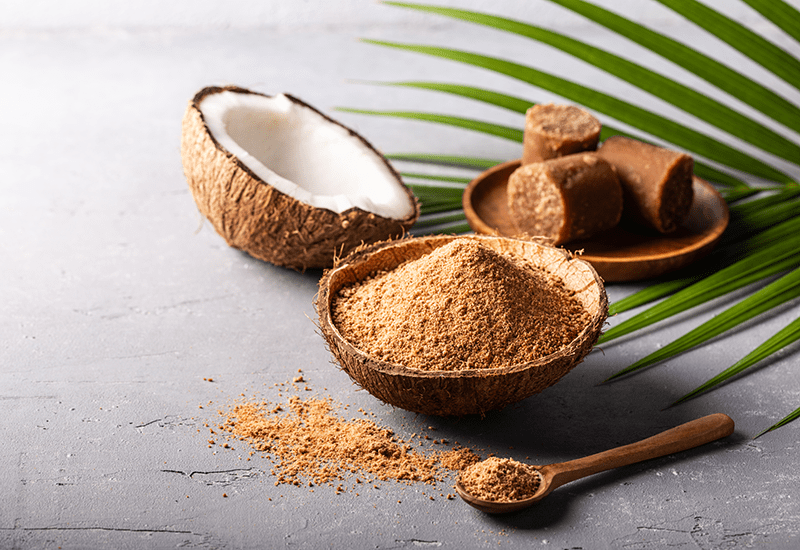
The following article was written by Heinen’s Chief Dietitian, Melanie Jatsek RD, LD.
I think we all can agree that it’s important to reduce the amount of added sugar in our daily meals and snacks. Swapping one sugar for another won’t help you achieve your health goals if you don’t work on minimizing sugar in the first place.
With that disclaimer in place, it’s also important to realize that some sugars are more natural than others and have less of an impact on your blood sugar. Think of these five Fx™-approved sweeteners as upgraded choices with added benefits.
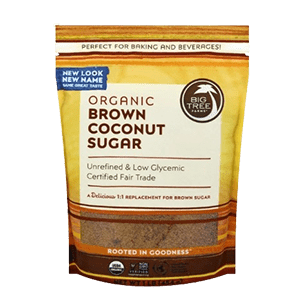
1. Big Tree Farms Organic Coconut Sugar
Also known as coconut palm sugar, this unrefined sugar comes from the dehydrated sap of the coconut palm tree. It even preserves some of the tree’s nutrients like iron, zinc, calcium, potassium, polyphenols, and antioxidants. With a caramel-like flavor, it can be substituted for equal amounts of cane sugar in recipes.
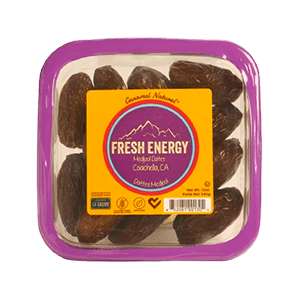
2. Fresh Energy Medjool Dates
Dates are the fruit of the date palm tree. Rich in fiber, potassium, and magnesium, dates make a wonderful sweetener for smoothies or a healthy snack when paired with Heinen’s Fan Favorite fresh ground almond butter. Because of their subtle caramel flavor and sticky texture, dates are an ideal ingredient in homemade energy bars, too!
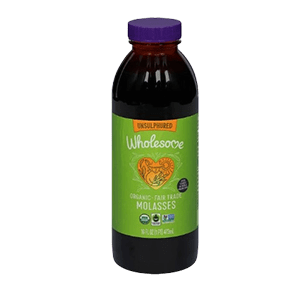
3. Wholesome Organic Unsulfured Molasses
Molasses is the syrup that results when the sugar cane plant is refined into sugar. Blackstrap molasses is the final byproduct of the third boiling cycle in this process, creating a deep, almost bitter flavor. Small amounts of vitamin B6, potassium, calcium, magnesium, and about 20% of your daily iron needs can be found in one tablespoon.
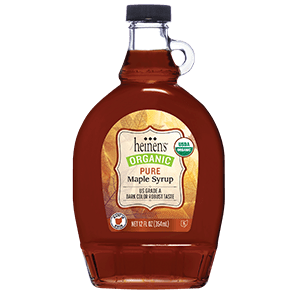
4. Heinen’s Organic Pure Maple Syrup
Maple syrup is made from the sap of sugar maple trees. A decent source of potassium, magnesium, and iron, and a very rich source of manganese, maple syrup is still sugar and should be used sparingly. Don’t be fooled by imitation pancake syrups loaded with preservatives and high fructose corn syrup. Reach for the real deal!
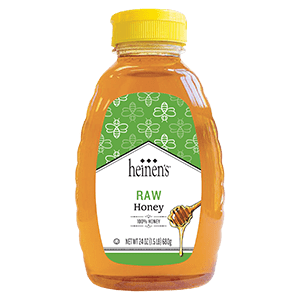
6. Heinen’s Raw Honey
Raw honey is unfiltered and unpasteurized. It can be described as honey “as it exists in the hive.” This means it retains all the original vitamins, minerals, and beneficial plant compounds (polyphenols) that Mother Nature intended. A bonus of choosing raw over regular is that raw honey has been shown to have anti-fungal and anti-bacterial properties.
Key Takeaway
My grandma stocked her kitchen with simple and pure ingredients and as a result, her meals and desserts were undeniably delicious. Take a page from her recipe book and stock your pantry with one or more of these natural sweeteners!


